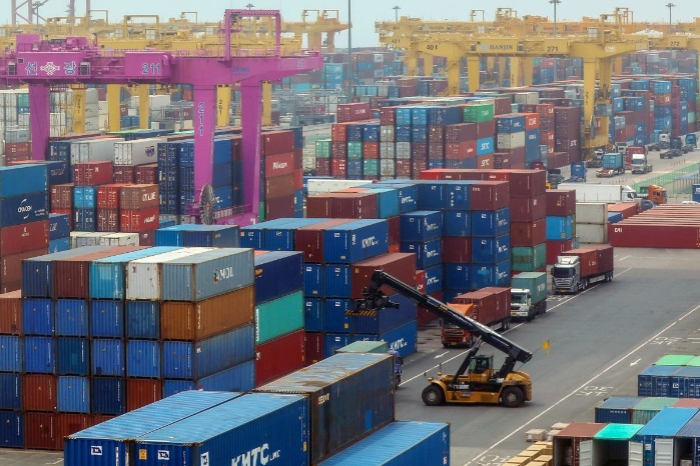South Korea’s current account swung to the black in May from a deficit the prior month, thanks to a surplus in the goods account for the second straight month and falling dividend payouts to foreign investors.
The country posted a $1.93 billion current account surplus in May, according to Bank of Korea’s preliminary data on Friday. Asia’s fourth-largest economy had
a $790 million deficit in April due to local companies’ increased dividend payments to foreign investors and continued travel account deficits in the wake of eased pandemic lockdown rules.
The current account balance is a key measure of Korea’s international transactions with the rest of the world.
The goods account logged a surplus for two consecutive months, with $1.82 billion in May and $580 million in April. Korea’s exports reached 52.75 billion in May, down 14.7% on-year. Monthly exports from Korea declined for the ninth consecutive month in May on a year-over-year basis.
Imports to Korea in May fell 13.5% on-year to $50.93 billion. Korea’s monthly imports shrank for three consecutive months year over year.
Sales of some key items declined on-year amid the global economic downturn. Shipments of semiconductors, petroleum products and chemical engineering goods respectively plunged by 35.6%, 33% and 20.8% on-year in May. Steel product shipments fell 8.3% from a year ago.
Passenger cars showed brisk sales in May, posting a 52% surge in shipments on-year.
The service account in May logged a $910 million loss, compared with a $1.21 billion deficit the previous month.
The travel account saw its deficit widen to $820 million in May from $500 million in April as traveling restrictions eased after the height of COVID-19. The transport account swung to the red with a $350 million loss in May from a $30 million profit a month earlier.
The primary income account, which tracks wages of foreign workers and dividend payments overseas, swung to a $1.42 billion surplus in May after a $90 million shortfall in April.
The improvement comes as dividend income reached a $900 million surplus in May, compared with a $550 million deficit in April when Korean firms increased dividend payouts to foreign investors.
Write to Jin-Gyu Kang at
josep@hankyung.com
Jihyun Kim edited this article.




